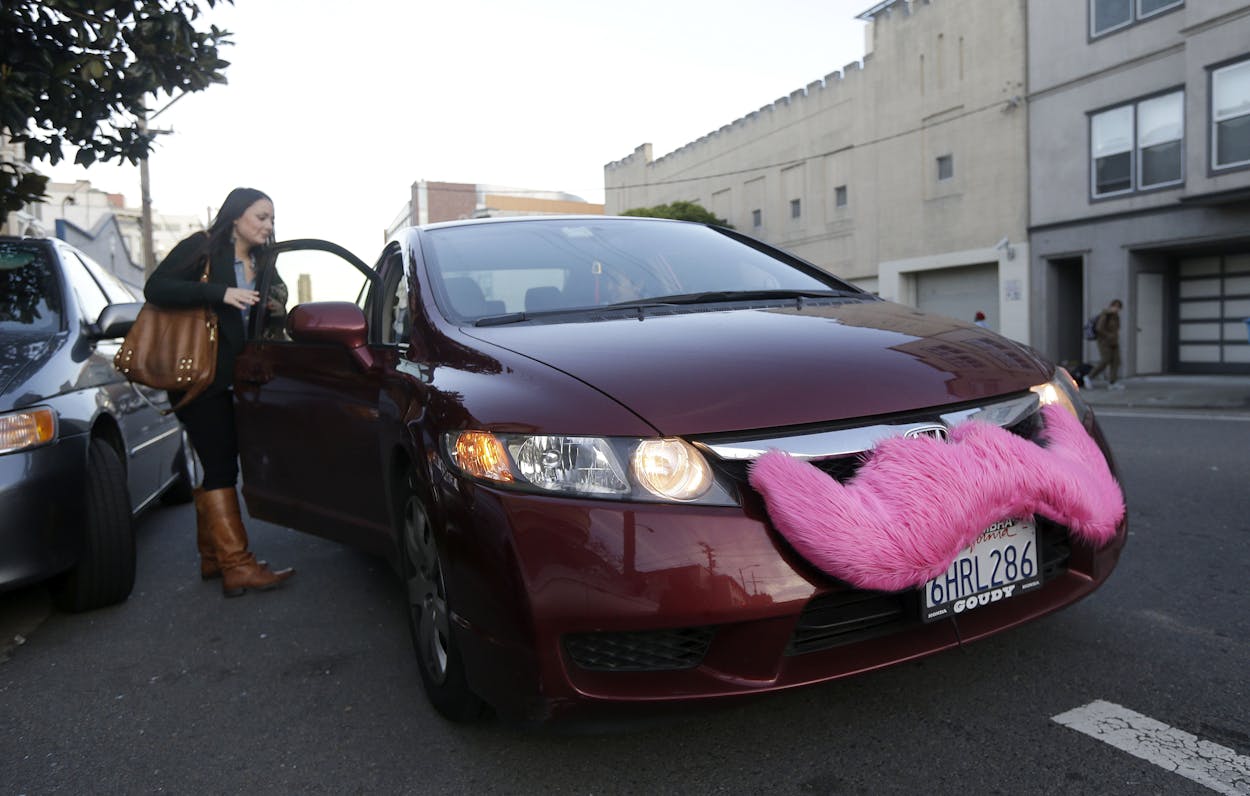After hours, weeks, months, and years of back and forth between the city and ridesharing companies Uber and Lyft, Austin City Council has finally done it. On Friday city council members voted 9-2 to pass an ordinance that, among other things, would require transportation network companies (TNCs) to run fingerprint background checks on their drivers. Essentially, they’ve passed the very regulation that Uber and Lyft have strongly suggested would make them leave the city.
But not immediately. The requirements for fingerprint background checks will go into effect on February 1, 2016 and will be implemented in stages. As the Austin American-Statesman reports:
Under the ordinance, transportation network companies will have four benchmark dates to have fingerprint checks of certain percentages of driver-hours or driver-miles: 25 percent by May 1, 50 percent by Aug. 1, 85 percent by Dec. 1 and 99 percent by Feb. 1. That would appear to give Lyft and Uber a grace period of more than five months before any of the drivers would have to go through the process.
Even with this “grace period,” it’s unclear how much longer Uber and Lyft will remain in the city. Austin Mayor Steve Adler posted his support of the new ordinance on Facebook, along with a reminder that it shouldn’t necessarily “stop operation of either Uber or Lyft in Austin.” He wants to keep the companies in the city, but whether they’ll stay is up to them.
In a statement by Lyft spokesperson Chelsea Wilson, Lyft only promised to hang around until the new ordinance started affecting them.
Lyft will operate in Austin until mandatory fingerprint requirements force us to leave. In the meantime, we will remain at the table in an effort to create a workable ordinance and preserve the benefits ridesharing brings to visitors and residents. We do not operate in cities that require mandatory fingerprint background checks.
That’s somehow both hopeful and bleak. Uber was a bit more straightforward.
We haven't agreed to any proposal from @MayorAdler. The details have not been revealed but it appears that nothing substantive has changed.
— Uber Austin (@Uber_ATX) December 17, 2015
The issues between Austin and the two major ridesharing companies have been plenty, but things took a noticeable turn as reports of sexual assaults by TNC drivers came in this year. Fingerprinting background checks became a central issue, but one that the companies refused to budge on. Uber and Lyft have argued that these kinds of background checks are based on “antiquated rules” and that they’ll push potential drivers away.
When we’re talking about the safety of customers, particularly women, who are trusting other drivers to keep them safe (often requesting rides after consuming alcohol), reasons against fingerprinting aren’t good enough. That’s not to say that fingerprint background checks are 100 percent secure and accurate; sexual assault charges have also been filed against taxi drivers who’ve gone through fingerprint-based background checks. But considering that Uber and Lyft don’t meet with drivers before trusting them with their customers, one would hope they’d be open to another layer of safety. Uber, at least, seems to be considering fingerprint background checks since they’re operating in Houston, which requires them, and they’re testing them out in California.
Also, this doesn’t mean necessarily mean the end of ridesharing in Austin. Days before city council reached its decision, a Dallas-based company called Get Me announced plans to relocate its headquarters to Austin and expand from delivery services into ridesharing. What’s more, they’ve promised to go along with whatever regulations Austin City Council puts forward.
“We support, basically, what is proposed,” Derrick Dunlop, product director at Get Me, said in an interview with Austin Business Journal. “We will comply with the city ordinance. Being 113 days old, being new in the game in that sense, if [that’s] something that cities feel is the safest way for consumer and driver to feel protected, then we support that.”
Maybe that’s what will make Get Me’s transition into the rideshare business easy: their newness and flexibility. When Uber and Lyft first started entering cities, there was very little in place in city ordinances, if anything at all, to handle new app-based ridesharing services. These companies instead developed their own business models and ran (or, you know, drove) with them, occasionally—or often, in the case of several major Texas cities—against the wishes of city officials who then rushed to catch up with temporary agreements.
Either way, Austin has set its foot down. There are other issues to work out, such as a series of “incentives” and “disincentives” to encourage TNCs to use fingerprint background checks, but who knows if Uber and Lyft will stick around long enough to see what they are. As for Get Me and other future TNCs looking to make the move to Austin, they’ll know what to expect.








